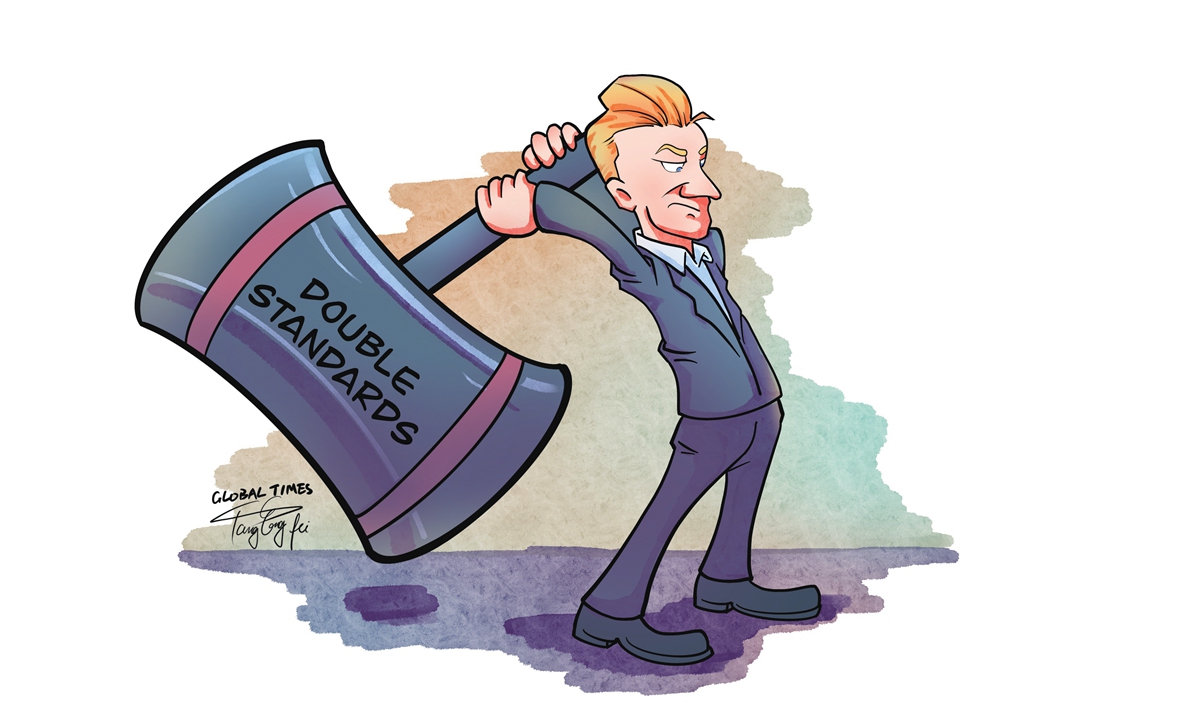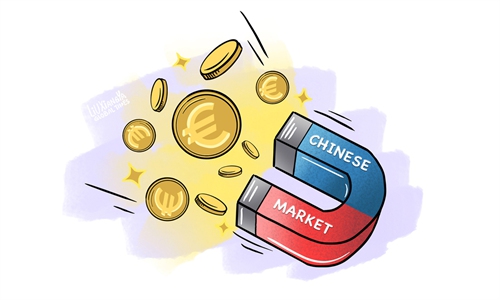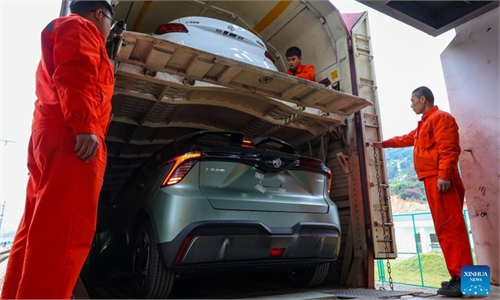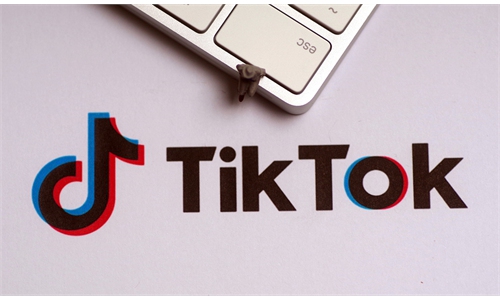
Illustration: Tang Tengfei/Global Times
China needs to play a constructive role in talks at the World Trade Organization (WTO) to reform global trade rules on industry subsidies, or risk rivals setting their own policies at China's expense, European Trade Commissioner Valdis Dombrovskis said on Monday, Reuters reported.Ministers from the WTO's 164 members will gather in Abu Dhabi for a biennial conference from February 26-29, aiming to agree on reforms of the global trade body itself, on trade in e-commerce and on subsidies for fishing and agriculture, according to the report.
At a critical juncture where WTO reform is facing significant obstacles, it is necessary and beneficial to have global communication on trade rules on industrial subsidies, but those hoping to use the WTO platform to pressure China will be disappointed. To achieve positive results from discussions on industry subsidy rules, it is crucial for all parties to eliminate the influence of geopolitical factors, ideologies and protectionism.
As a major trading nation and advocate of multilateral free trade through organizations like the WTO, China naturally seeks to reach consensus with all parties and collectively establish global trade rules on industry subsidies. For instance, this helps to address the issue of investigations faced by Chinese electric vehicle (EV) exporters to Europe, which is in line with China's economic interests.
In this sense, China also has reasons to demonstrate its goodwill and sincerity in playing a constructive role in these negotiations, but the premise is that other parties also respect the principles of free trade, respect facts, and do not have malicious intentions to suppress the development of China's related industries.
For a long time, the US and the West have been accustomed to conducting so-called subsidy investigations and anti-dumping investigations against Chinese products without evidence.
Based solely on assumptions regarding alleged subsidy programs, the EU in 2023 announced an anti-subsidy investigation into Chinese EV brands. The US has repeatedly initiated anti-subsidy investigations against China's products, or even arbitrarily placed so-called anti-dumping duties on Chinese goods.
These examples share a commonality: Chinese industries that have established a certain competitive advantage in overseas markets will be targeted. Some politicians representing a minority of Western companies will come forward to propose so-called relevant investigations. Their intention is evident, which is to protect local businesses by obstructing Chinese exports.
In stark contrast to the approach of Western countries, China does not initiate so-called anti-subsidy or anti-dumping investigations against overseas products without a factual basis. China has always upheld the principle of multilateral free trade, promoting free trade and expanding imports within frameworks such as the WTO.
Regarding subsidies, Chinese Ambassador to the EU, Fu Cong, recently stated that in the case of the EV industry, the Chinese government only provides subsidies during the research and development phase, which fully complies with WTO rules. However, during the production phase, the Chinese government does not provide any subsidies. Therefore, accusing Chinese companies of accepting government subsidies or implying that Chinese companies rely on government subsidies to grow is unfair.
In fact, the US' "Inflation Reduction Act" has seen strong backlashes from businesses in many countries, and many European countries also offer subsidies for certain industries. If China took the same approach, there could be many things that could be subject to investigation.
It is hoped that the US and other Western countries stop using double standards to suppress Chinese companies. Only in this way can all parties accelerate the process in WTO negotiations and promote the rapid formation of global trade rules on industrial subsidies that are in the interests of all parties.
Against the backdrop that global trade is challenged by protectionism, the establishment of rules on industrial subsidies and related issues by the WTO will not only resolve trade disputes but also significantly restore confidence in multilateral free trade. Therefore, all parties should eliminate political interference and collectively work toward reaching consensus and establishing rules.
The author is a reporter with the Global Times. bizopinion@globaltimes.com.cn



